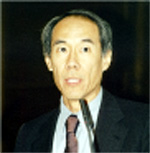|
| Magazine |
|
| About |
|
| SUMMIT |
|
| Contacts |
|
| Home |
|
|
|
|
|
| |











|
|
 |
| #3' 2003 |
print version |
|
|
WHAT RULES TO FOLLOW? |
|

Edward Yang
U.S. Department of Commerce |
|
s far as the comprehensive agreement is concerned, this year we have reconsidered the quota on slabs. We have done this so as to bring our agreement in line with international norms. We have raised the limit to 1.2 million tons. The quota on cast iron will increase up to 2 million tons. And there will be special conditions set for steel billets. We are working on this question now together with the Russian Government.
In recent years there was a large-scale restructuring in the U.S. Since 2000 almost 30 companies have declared bankruptcy. The production capacities went down by almost 14 to 15 million tons. The very serious consolidation processes have taken place in the industry.
While working on measures in accordance with Article 201, we wished to make them temporary so as to give American producers a chance to restructure. In most cases this restructuring did take place. The industry has become more competitive. I would like to stress that we are pleased with an opportunity to work with all Russian producers now, when Russia has been given the status of a country with a market economy. And to work jointly on solving not only bilateral but multilateral problems as well, problems that are existing in the global steel market. 

Neil Ellis
Sidley Austin Brown & Wood LLP, USA |
|
s far as the legal basis and settlement of trade disputes are concerned, there are three components here. The first component is tariffs and quotas, the second component is the recognition of Russia as a country with market economy by the U.S. Department of Commerce and, finally, the third one is the comprehensive agreement, which limits Russia’s import of a number of products.
As is known, restrictive measures were introduced in March 2002 for the period till the spring of 2005. Each year tariffs are to be reduced from 30% to 18%.
By September of 2005 the Trade Commission should submit to the U.S. Government a report on effectiveness of restrictive measures as regards the American metallurgy. The Commission may recommend the review of these measures or even their cancellation. I think that one could hardly expect the cancellation of restrictions taking into account the power of the U.S. steel lobby.
You also know that WTO did not support the actions of the U.S. Trade Commission. A month ago an appropriate body of WTO once again concluded that the regime proposed by the Commission violated the agreement on guarantees, which is effective within WTO.
Nevertheless, the U.S. has already declared that it will protest this WTO decision. Most likely, the U.S. will lose the case. But even in the case of the U.S. failure quotes and tariffs will remain in force for a certain period of time. A decision of the WTO body of appeal will be made no sooner than this fall. After that the U.S. will be given some time so as to correct the situation. This period may last from 6 months to a year. If there is a need to change the law, it may require from one and a half years to three years. If the Commission was to revise some provisions of its own decisions, then, logically speaking, the period would be somewhat shorter. But in any case all this will be over no sooner than the spring of 2005. 

Richard Luff
Partner, Van Bael & Bellis, Belgium |
|
here is little doubt that the steel sector will remain one of the crucial topics after Russia’s WTO accession. The extent to which the Russian government will be able to use the available WTO instruments in order to defend the interests of its steel industry, will largely depend on the Russian authorities – and the lobbying power of the country’s industry.
However, once in, Russia will also have the opportunity to use the well-oiled dispute settlement machinery of the WTO in the event of unfair or discriminatory treatment by fellow members.
Russia will need to comply with the WTO’s subsidies agreement even while it will be in a position to attack other countries’ subsidy policies when necessary. Its own subsidy schemes will have to be granted in accordance with the WTO Agreement on Subsidies and Countervailing Measures. Could this obligation of compliance make Russia’s steel industry less competitive on the global market, as it might lead to increases in the costs of production, and in turn, sales prices?
Russia grants different types of loans, tax breaks and allowances, some of which may be limited to the steel sector. Several of these may be deemed illegal subsidies by WTO standards. The result: Russia’s government will have to review its subsidy schemes for steel products to ensure WTO compliance – or face the consequences (countervailing actions against exporters and possibly dispute settlement proceedings before a WTO panel).
Have Russian manufacturers of steel thought of the consequences of these various matters – e.g., a possible reduction of available subsidies, or countervailing actions against them initiated by Russia’s trading partners? 
|
|
|
|
|
|
current issue


previous issue


russian issue


|
|






 back
back





